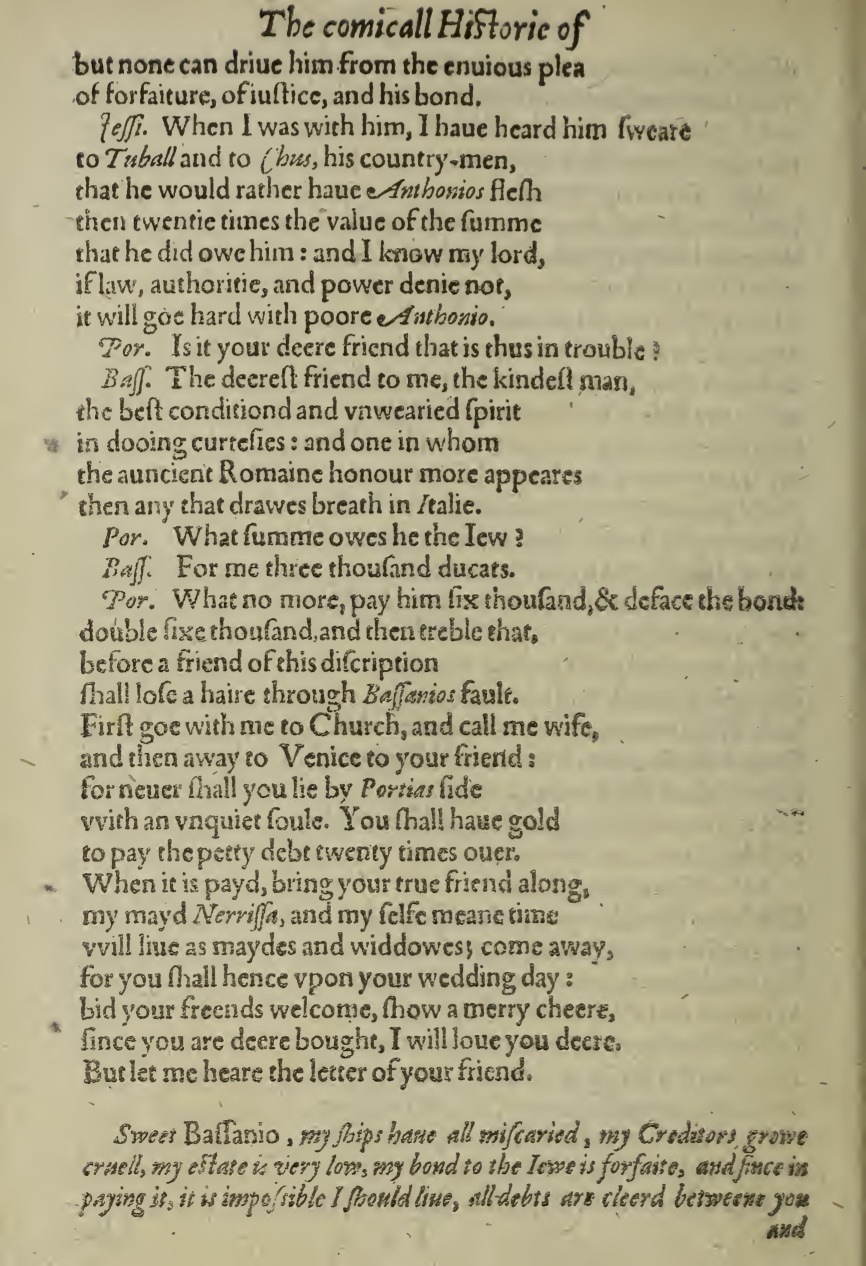JESSICA
I linked up with him innit? I heard him swear
To Tubal and to Chus, his mandem,
That he would rather have Antonio’s flesh
Than twenty times the value of the bands
That he did owe him. And I know, my lord,
If law, authority, and power owned him,
It will be hard on poor Antonio.
PORTIA
Is it your dear friend that is thus in trouble?
BASSANIO
My best mate, a solid chap,
Bruv’s true fam with dench spirit
To roll with, and one in whom
The ancient Roman honor more appears
Than any that draws bare breath in Italy.
PORTIA
What sum owes he the Jew?
BASSANIO
Bruv. For me, he owes the pagan three thousand ducats.
PORTIA
What, no more?
Pay him six thousand and deface the bond.
Double six thousand and then treble that,
Before a friend of this description
Shall lose a hair through Bassanio’s fault.
First go with me to church and call me wife,
And then away to Venice to your friend!
For never shall you lie by Portia’s side
With an unquiet soul. You shall have gold
To pay the petty debt twenty times over.
When it is paid, bring your true friend along.
My maid Nerissa and myself meantime
Will live as maids and widows. Come, away,
For you shall hence upon your wedding day.
Bid your friends welcome, show a merry cheer;
Since you are dear bought, I will love you dear.
But let me hear the letter of your friend.
